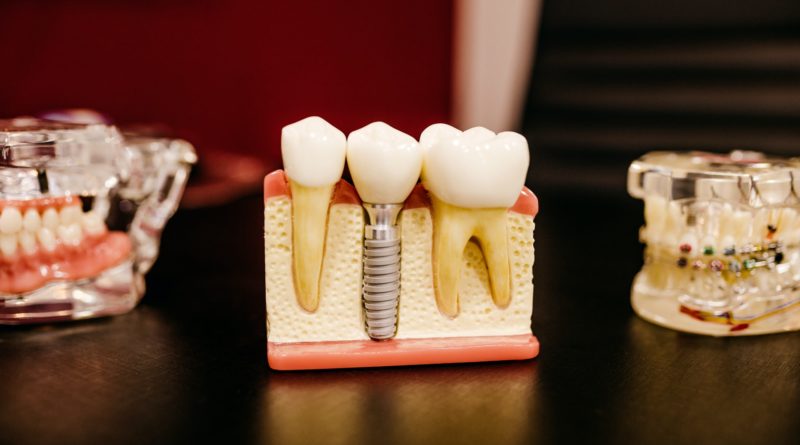Is There A Link Between Hair Loss & Dental Health?
Wondering how can hair loss and dental problems be related?
Yes these health issues are inextricably linked. Several studies have been conducted to demonstrate their relationship and the importance of seeking medical attention. The most straightforward and obvious scenario is, ‘If a tooth infection occurs, there is a possibility of alopecia areata which is a type of hair loss.
Alopecia areata is an autoimmune condition in which normal cells begin to turn against themselves, resulting in patches on the beard, scalp, or brows.
And the list grows…
Caffeine, stress, genetics, skin conditions, and iron deficiencies all have the potential to cause hair loss and severe thinning. The list continues to grow as researchers narrow in on all of the scientific explanations for various balding issues. As strange as it may sound, experts have discovered a link between oral health and hair loss. Yes, the health of your teeth can reflect, and even influence, the health of your hair growth.
What is the link between Vitamin D & Hair loss or Dental disease?
Vitamin D is known to help maintain calcium and phosphorus concentration levels in the body as well as aid in bone metabolism. Finally, it is an anti-inflammatory agent that also aids in the production of antimicrobial peptides.
According to some research, deficiency of vitamin D has the potential to cause hair loss problems, though the exact mechanism involved in hair loss is unknown. In general, vitamin D is needed to boost hair follicles, and deficiency causes hair follicles to become stunted & weakened, resulting in hair thinning and, eventually, hair loss.
Major studies on patients with alopecia areata produced a result that they have low vitamin D levels.
According to medical reports, there is a link between alveolar bone density, osteoporosis, and tooth loss. According to these studies, low vitamin D levels are the major causes of tooth decay and periodontal disease.
Managing Deficiency of Vitamin D
If you are worried about your levels of vitamin D, a vitamin D blood test is recommended. Vitamin D is usually needed for normal health, and its benefits extend beyond dental health and hair growth to bone health and female fertility.
The main cause of hair loss in women is deficiency of vitamin D combined with iron deficiency. We typically look for hair loss treatments such as Finasteride, Minoxidil, and hair transplant to combat hair loss and Dental implants to replace missing teeth; however, improving vitamin D levels is an instantaneous step to combating hair loss.
Sources of Vitamin D
Sun in the early morning- Don’t stay inside, just spend the early morning sitting in the soft and calm sun. When the sun kisses the skin, the cholesterol-like substance is transformed into active vitamin D. Finally, this method is the most effective for producing vitamin D for free.
Vitamin D dietary foods/supplements include Egg Whites, orange juice, Fish, Cereals with milk for breakfast, and Vegetables with dark green leaves
Self assessment:
When a tooth becomes infected, white blood cells battle against the infection. Because the cells spread alopecia patches which will appear near the mouth’s infected area. Typically, these patches appear in the neck, beard, brows, or underneath of the scalp.
According to research, more hair loss generally occurs when a tooth infection is severe and goes untreated for an extended amount of time.
Treatment Options
Consider getting a dental checkup if you notice any odd patches on the scalp or elsewhere. In general, unnoticed dental problems will be discovered only in advanced stages.
50 percent of patients with hair loss don’t take the time to figure out the root cause of their hair loss, and as a result, they immediately begin using Finasteride or Minoxidil to treat the problem.
Trying to treat hair loss without a general medical examination is merely a band-aid solution to the underlying problem.
Nowadays dentists are completely inspecting patients’ scalps, particularly those with tooth infections, as a result of increased awareness. Alopecia & Dental infections can be easily examined in the early stages by performing tests and identifying symptoms.
Signs & symptoms of a tooth infection
*Inflammation of the neck
*Tooth, Neck, and jawbone throbbing pain
*Fever
*Neck lymph nodes that are swollen
*Sensitivity of the teeth
Based on the infection type, the dentist will completely clean the infection before repairing the tooth using root canal treatment. On the other side, surgery is required to remove the affected tooth, which may be a simple or a complex surgical approach.
Both nonsurgical and medical treatments can be used to treat alopecia areata. Administering steroid injections to the affected scalp region are the most immediate medical treatment for alopecia areata/hair loss. Minoxidil is an alternative method that promotes hair growth. All types of hair loss treatments are administered over a set period of time, usually some months.

